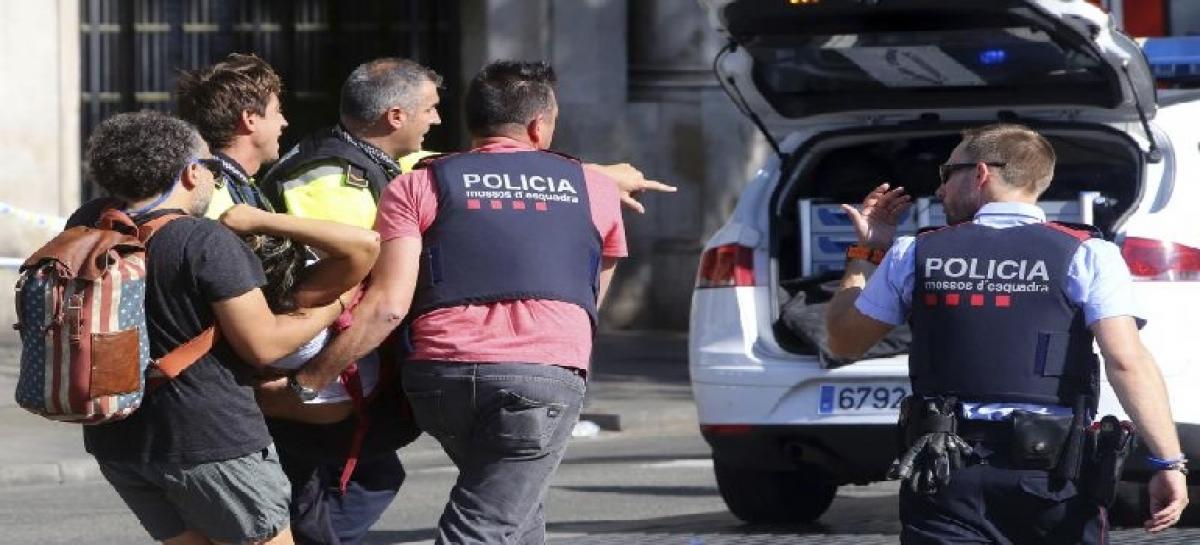Live
- India vs Malaysia FIFA Friendly Match Poster Unveiled by CM
- Govt awaits Governor's nod to prosecute KTR
- CM exhibits ignorance with his statements on Guv: Kishan
- Amid buzz over arrest, KTR says he is ready to go to jail
- Govt trying to grab lands for a song: BJP MP
- BRS an obstacle for investments: Jagga Reddy
- TGPSC all set for holding Group-III exams
- Delays dog LRS cases as applications pile-up
- TGSPDCL deploys 101 ERT vehicles
- JIH to host national conclave in city
Just In

Spanish police on Saturday released the names of three Moroccans suspected of deadly terror attacks and who were shot dead overnight by security forces in the seaside resort of Cambrils.
Barcelona: Spanish police on Saturday released the names of three Moroccans suspected of deadly terror attacks and who were shot dead overnight by security forces in the seaside resort of Cambrils.
Catalonia's regional police identified them as Moussa Oukabir, 17, Said Aallaa, 18, and Mohamed Hychami, 24. Police said they were searching for a fourth suspect, Younes Abouyaaqoub, aged 22.
Police Friday stepped up their investigation into the twin vehicle attacks in Spain that left 14 dead and over 100 more injured in a bustling tourist area of Barcelona and the nearby seaside resort of Cambrils.
The attacks claimed victims and wounded from three dozen countries.
Of the 12 people police suspect of involvement in the attacks, five were shot dead by security forces in Cambrils and another four have been arrested, said Josep Lluis Trapero of Catalonia's police during a television interview late Friday.
The three remaining suspects have been identified but have not been detained, he added.
Police suspect two of them may have died in a blast at a house in Alcanar, about 200 kilometres south of Barcelona, where the group is believed to have been preparing explosive devices.
Officers have found "the remains of two different people, we are working to prove that they are two of these three people who have been identified," said Trapero.
Police have not yet identified who drove the white van that sped into crowds on the busy Las Ramblas avenue in central Barcelona, leaving 13 people there dead, he added.
Earlier on Friday Trapero said the group was preparing "one or several attacks in Barcelona" with explosive devices but after the blast at the house in Alcanar they moved quickly to commit "more rudimentary" attacks.

© 2024 Hyderabad Media House Limited/The Hans India. All rights reserved. Powered by hocalwire.com







